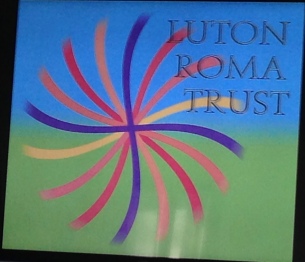“Now he said this, not because he was concerned about the poor but because he was a thief…”
It is a lot easier to discern someone’s motives if they are doing something blatantly evil or self-serving. It’s a lot harder when actions look, smell, and feel noble and good. Of course, it is not really our job to discern others’ motives, although wisdom is critical in terms of forming alliances and partnerships.
The story in John 12 showcases a lot of different motives: Mary’s, the chief priests, Judas’s, the people’s and Jesus’s.
It seems like motive is related to control or at least one’s perception of control. Who gets to tell the story and who gets to be in charge? Judas, of course, wanted to control the finances—motivated by greed.
But more fascinating to me are the chief priests in this story.
“But the chief priests planned to put Lazarus to death also…”
The more I think about this, the crazier it seems. Of course, their motives are outlined in the passage: “…because on account of him many of the Jews were going away and were believing in Jesus.”
In the earlier chapter, we see that this does not seem to be motivated by a fear that they were going away from the true God, but rather from a political and national interest: “If we let Him go on like this, all men will believe in Him, and the Romans will come and take away both our place and our nation.”
In essence, they wanted to control the narrative—and this motivated them even to consider the extraordinary act of “re-deathing” a man who had recently been resurrected.
But really, this impulse to control the narrative seems to be part of the human story. In the 21st century, this impulse took on a bizarre twist since the narrative can be controlled by any person’s video, story, or headline that goes viral. Political leaders attempt to ‘control the narrative,’ often by extreme means.
But what about the Church? We are also guilty of this. Sometimes, like Lazarus’s resurrection, we are so afraid of something new and outside the limits of our current theological understanding that we either silence that narrative or try to force it into submission using subtle spiritual manipulation.
Other times, our good deeds are masked with—shall I say—Judas’s motives. In other words, holy rhetoric with unholy motives.
This can happen particularly when those of us who are coming from more financial, political, and/or social capital are serving those with less power.
I was just recently listening to a podcast from a woman who has taken sanctuary inside a church in the United States out of fear of deportation. She is very appreciative of her allies, those who are helping her and her family(from whom she is now separated).
“And yet,” she said, “and yet despite their help and their service to me, I still have the right to make my own decisions, because this is my life.” She was arguing for the right to control her own narrative, despite her current vulnerability. In fact, she directly confronted a politician who was using her story to promote his own platform instead of her community.
Does this sound familiar? Because I hear leaders from marginalized communities say this same thing—people who come to ‘help the powerless’ sometimes use their story to promote their own ministry. Or sometimes feel that they have the right to make decisions on their behalf regarding their needs or what they should do. When we do that, we further violate a person’s dignity.
Helping the vulnerable does not give us the right to control the narrative.
This can be a very sensitive issue—like I commented earlier, who has the right to judge someone’s motives? And yet, if we understand ourselves properly—the human tendency to want to control and dominate—maybe we can be more attuned to our own motives.
As a writer, and often writing about people in vulnerable situations, I take this deeply to heart. I must diligently search my own motives and also allow myself to be held accountable and be corrected by the vulnerable community itself.
“But the chief priests planned to put Lazarus to death also…”
Let the shock of this drastic intent to ‘control the narrative’ sink into you—and before writing it off as ‘impossibly extreme’ perhaps it can serve to illuminate the subtle or not-so-subtle ways in which we ourselves try to exert control.



